Sweden Addresses Escalating Detention Of Citizens In Iran
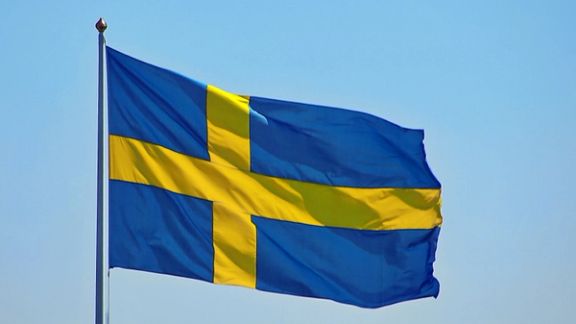
The Swedish Ministry of Foreign Affairs is intensifying efforts to release Swedish citizens unlawfully detained in Iran as the number of arrests climbs.

The Swedish Ministry of Foreign Affairs is intensifying efforts to release Swedish citizens unlawfully detained in Iran as the number of arrests climbs.
Although the ministry has declined to specify the number of detainees believed to be held by the Iranian regime, recent reports suggest an increase in the number of detained Swedes. The latest was a 60-year-old dual Swedish-Iranian citizen arrested on January 19.
The Swedish foreign ministry summoned Iran's charge d'affaires on January 17 urging the release of all detained Swedish citizens and expressing concern over the missile attack on Erbil, Iraq, on January 15.
On January 16, a Swedish man in his twenties residing in central Iran was also arrested. The ministry cited consular confidentiality for not disclosing further details about the detainee's identity.
TV4 Sweden reported that the charges include "complicity in murder" and "weapons-related crimes" in connection with a fatal shooting, with an arrest warrant issued in late December.
In a separate case, Johan Floderus, a 33-year-old Swedish EU diplomat, has been detained in Iran since April 2022. His trial began in December.
Iran is known for regularly arresting foreigners and individuals holding dual citizenship as part of a tactic to gain leverage in negotiations with Western nations. The United States released $6 billion of Iran's blocked funds in 2023 to secure the freedom of five hostages.
The situation has escalated since Sweden upheld a life sentence for a former Iranian official convicted last year for his part in a mass execution of political prisoners in Iran in 1988, making Swedish citizens particularly vulnerable to Iran's hostage diplomacy.
In 2022, the Stockholm District Court ruling found Hamid Noury guilty of murder and serious crimes against international law.
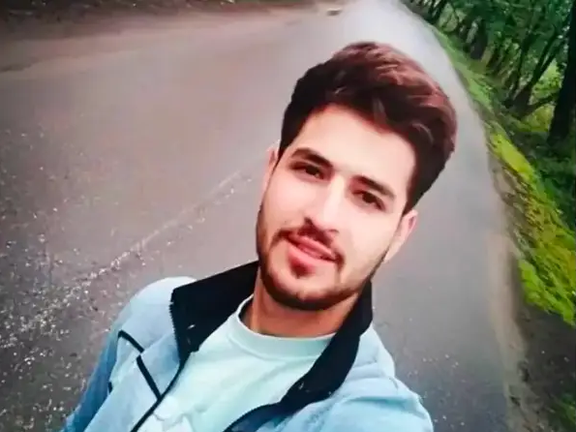
Iran's execution on Tuesday of a ninth young man, Mohammad Ghobadlou, for the 2022 protests has angered Iranians and rights groups, who call it “state-murder”.
“Mohammad Ghobadlu’s execution is an extrajudicial killing according to international law and the Islamic Republic’s own laws,” Mahmoud Amiry-Moghaddam, director of the Norway-based Iran Human Rights (IHR NGO) said about the execution.
While demanding Iran's Supreme Leader Ali Khamenei and its judiciary to be held accountable for the execution, Amiry-Moghaddam urged the international community and countries with diplomatic relations with Iran to condemn the hanging in the strongest terms and “stop further executions by raising the political cost of executions through effective action.”
Center for Human Rights in Iran, another Iranian rights organization which is based in New York, also called Ghobadlou’s execution a state-sanctioned murder and urged the fact-finding mission mandated by the United nations over Iran's human rights violations to investigate its dimensions.
"The head of the judiciary must stop the arbitrary execution of Mohamed Ghobadlou, suddenly and unlawfully scheduled for tomorrow. The case of this young man with a disability arrested in connection with the 2022 protests has been marred by torture and secretive proceedings,” Amnesty International tweeted hours before the execution.
Despite Ghobadlu's sentence being overturned by Iran’s Supreme Court last year, his execution has pushed many to call for a total rejection of the clerical regime. Kaveh Shahrooz, a lawyer and activist tweeted, “No reforms. No deals. No negotiations. Only revolution. Death to the Islamic Republic.”
Others went further, calling for revenge against the rulers once there is a regime change. One person tweeted an image resembling Supreme Leader Ali Khamenei hanging from the rope of a crane.
On Tuesday, a Kurdish political prisoner, Farhad Salimi, was also hanged at Ghezel Hesar Prison in Karaj after fourteen years of imprisonment without being allowed a last meeting with his family.
The Islamic Republic has executed at least 90 people From December 21 to January 20 for various reasons.
A man holding a small banner on which he describes Ghobadlou’s execution as “Khamenei’s latest crime” protesting outside the bazaar of Tehran.
The US Special Envoy for Iran "strongly" condemned the Islamic Republic's "unjust execution" of Ghobadlou and its "continued use of sham trials and the death penalty against those who participated in the Woman, Life, Freedom protests." "We express our condolences to Mohammad's family. Mohammad Ghobadlou and all those who have died at the hands of Iran's judiciary shall not be fogotten," he said.
Ghobadlou who had struggled with serious mental health issues including bipolar disorder for several years was accused of driving into a group of anti-riot police in Parand in the south of the capital Tehran during the 2022 protests, resulting in an officer’s death.
Ghobadlou and his defense attorney, Amir Raisian, who was not allowed to represent him in court, consistently denied the charges, providing evidence to demonstrate his innocence.
Ghobadlou was sentenced to death for “waging war against God” by Abolghasem Salavati, a notorious judge of revolutionary courts who has meted out numerous death sentences on dissidents and other citizens including those found guilty of financial crimes.
Ghobadlou’s sentence was later annulled by the Supreme Court which ordered a branch of Tehran Criminal Court to retry the case. His execution despite the Supreme Court’s decision was unprecedented.
Mizan, the news agency of the judiciary, claimed after Ghobadlou’s execution said that his death sentence had been confirmed by the court appointed by the Supreme Court. Raisian says no new ruling had been conveyed to Mohammad and his family and has challenged the judiciary to present evidence of a new ruling.
“He was murdered by the Islamic regime in Iran even though he was innocent. He was wrongly convicted in a show trial,” Clara Anne Bünger, a member of the German Parliament who had accepted Ghobadlou’s political sponsorship tweeted. She had earlier urged the international community to put pressure on Iran to stop the execution of dissidents and repression of the Iranian youth.
“These actions of the Islamic Republic are only meant to suppress the progressive Woman, Life, Freedom movement,” she wrote.
In a tweet Tuesday, US-based activist Masih Alinejad urged European countries to expel an Islamic Republic diplomat, add 10 Revolutionary Guards officials to the EU sanctions list, and put limitations on trade with Iran for every prisoner executed.
“The West must send a strong message to the Islamic regime. This is how you save lives. This is how you support democracy and the struggle of people against autocracy,” she wrote.
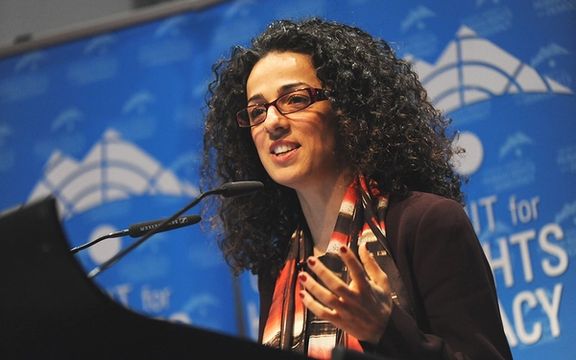
Iranian-American dissident Masih Alinejad slammed the execution of protester Mohammad Gobadlou on Tuesday, calling for international intervention.
Alinejad asserted, "As long as the West, instead of punishing the Islamic Republic, rolls out the red carpet for the killers, they will execute more young people in Iran," referring to Iran's recent presence at the United Nations.
Expressing dismay over Foreign Minister Hossein Amir-Abdollahian's attendance in New York for a Security Council meeting on the Middle East, Alinejad labeled it as "shameful" and called on the US government to revoke Amir-Abdollahian's visa and send him back.
Gobadlou, a 23-year-old Iranian, was executed by the Islamic Republic for participating in last year's protest against the murder of Mahsa Amini by morality police. Alinejad highlighted the gravity of the situation, stating, "His crime is protesting for Woman, Life, Freedom, in order to see a free Iran, but he was hanged this morning right after the morning prayer while his mother was in front of the prison to save his life."
Gobadlou had been accused of hitting and killing a policeman with his car during the 2022 protests in Iran. Both he and his defense attorney consistently denied the charge, presenting evidence to demonstrate his innocence.
Following the 2022 uprising triggered by the death of Mahsa Amini in morality police custody, there has been a notable surge in executions. In the year 2023 alone, a staggering 791 citizens were executed, comprising 25 women and 2 child offenders, representing a shocking 33% increase compared to the preceding year.
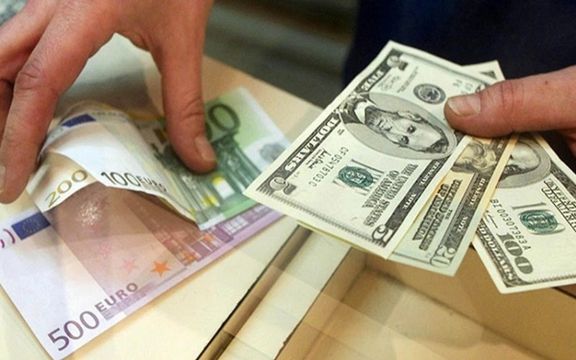
Iran’s rial has fallen 10 percent since early January as tensions have risen in the region, with concerns rising about possible hostilities with the US or Israel.
On Tuesday the US dollar rose to more than 550,000 rials, which means the Iranian currency has fallen 13-fold since 2018, when the United States exited the JCPOA nuclear deal and imposed sanctions on Iran’s oil exports and international banking.
The euro hit 600,000 rials and the British pound traded at 700,000 rials in Tehran's free currency market, which despite some official exchange rates, reflects real exchange rates.
Although during the Biden administration the sanctions have not been rigorously enforced and Iran has been able to somewhat recover its oil exports, the country’s financial situation remains precarious.
The rials fall quickened last week, when Iran fired ballistic missiles at targets in Iraq and Pakistan, claiming retaliation against Israel and terrorists. Pakistan retaliated by airstrikes on targets in Iran, raising concerns about some kind of war breaking out with neighbors, or with the United States and Israel. Already tensions were high because of Iran-backed Houthis attacking commercial vessels in the Red Sea.
The annual inflation rate is at least 50 percent, with rial’s fall signaling higher inflation in the months to come. Monthly salaries for workers are less than $200 a month, as inflation rises faster than salaries in a depressed economy. There have been work stoppages and protests in many sectors, including oil and gas production platforms and refineries. Many essential goods such as wheat and animal feed are imported and rial’s fall signals higher consumer prices.
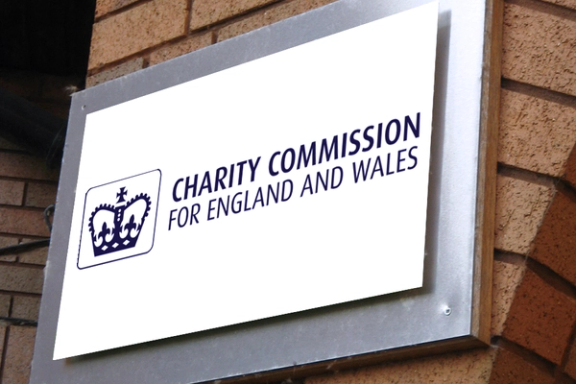
The UK’s Charity Commission is investigating videos featuring antisemitic speeches by Iranian generals delivered to British students.
The videos include "death to Israel" chants recorded at a UK Islamic charity's premises, the BBC reported.
Two of the videos also showcase talks by members of Iran's Islamic Revolutionary Guard Corps (IRGC), with one speaker describing an apocalyptic war against Jews and denying the Holocaust.
Concerns are mounting over the potential radicalization of UK Muslims by the IRGC and security services have issued warnings regarding possible incitement to violence and plots on British soil. The IRGC, known for its involvement in kidnap and assassination plots in the UK, exerts control over Iran's foreign covert operations and provides support to militant groups such as Hamas, Hezbollah, and the Houthis.
The commission's chair, Orlando Fraser, has previously warned that charities must not "become forums for hate speech" or extremism. The Charity Commission has the power to investigate, sanction or close down charities which breach the regulations.
In an Instagram Live session from Iran in September 2020, IRGC commander Hossein Yekta urged students to become "soft-war officers." Another video showed former IRGC commander Saeed Ghasemi falsely denying the Holocaust and discussing an apocalyptic war, suggesting British students could participate to "end the life of oppressors, occupiers, Zionists, and Jews worldwide."
The chair of the UK Foreign Affairs Committee, Alicia Kearns, has called for the proscription of the IRGC, expressing concerns about the potential impact of the group's activities in the country, citing them as “brazen act of radicalization.”
Last year, the UK Home Secretary said the IRGC was the single biggest threat to the UK while tens of IRGC plots had been foiled as revealed by MI5, at least 10 in 2022 and more during 2023, including threats to Iran International's staff.

Iran's ruling hardliners have crushed the election hopes of reformists and moderates in the parliamentary vote on March 1 by disqualifying nearly all their candidates.
Javad Heravi, the spokesman for the Moderation and Development Party, closely associated with Former President Hassan Rouhani and Former Vice President Mohammad Baqer Nobakht, announced on Monday that very few candidates have been approved to run. Other likeminded parties also do not have enough approved candidates to form a coalition with them.
In Heravi's words, "Practically, we are not players any longer," indicating that one of the most significant moderate parties in Iran will not participate in the elections. He added, "We are not to be blamed if we do not have a list of candidates for the election."

Iran's elections are not free from the start, with stringent vetting processes conducted by the interior ministry and the Guardian Council. This process has become increasingly political since 2020, resulting in the rejection of most non-hardliner candidates. As a result, hardliners, who are loyal to Supreme Leader Ali Khamenei, dominate the elections.
This situation effectively means that hardliners have already predetermined who can run and win in the elections, as nearly all ultraconservative candidates have passed the Guardian Council's scrutiny.
The party also criticized Iran's foreign policy, citing recent missile attacks on neighboring countries and stating that it has left voters concerned about the upcoming elections. Additionally, Iran’s 50-percent annual inflation rate and economic crisis have added to people's anxieties in the weeks leading up to the election.
Heravi explained that the Majles (parliament) cannot bring about positive change without elected lawmakers, and this can only happen with a high-turnout election. The party currently has 40 candidates remaining after the vetting process, but it will not release a candidate list unless it can field enough candidates for all constituencies in the country.
Furthermore, the party's spokesman noted that state television and the government appear to treat the elections as a competition among conservatives, and many former lawmakers, including those close to former Majles Speaker Ali Larijani, have been disqualified by the Guardian Council. Heravi emphasized, "Party members and others cannot expect anything from us while we have not been given a chance to compete."
Media reports indicate, the Guardian Council has not yet finalized the vetting results for 26 current members of the parliament and dozens of former lawmakers who have contested their disqualifications.
A former senior lawmaker, who has been disqualified by the Guardian Council, is Heshmatollah Falahatpisheh, the former head of the Iranian parliament and commentator who regularly writes about Iran's foreign policy with a critical view.
Meanwhile, Hadi Tahan Nazif, the spokesman for the Guardian Council has said that 12,033 candidates have been approved to run in the upcoming election. He confirmed that 26 incumbent MPs, as well as tens of former lawmakers, have been rejected. However, he added that the Guardian Council will soon release one more list of qualified candidates.
In the face of public reluctance to vote and the lack of popular support for participating in the election, the government has mobilized clerics and young seminarians to encourage voter turnout. Seminary students have formed a group called "Forty Days of Advice" to motivate people in the 40 days leading up to the election. However, clerics do not enjoy significant popularity in Iranian society, which poses a challenge to this propaganda effort.
A cleric, Jalal Razavi Mehr, the head of the Association of Qom Seminary Students has said that voting in the election is as important as honoring the chastity of one's wife and daughters.